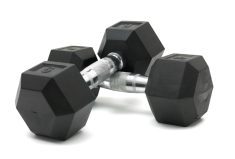Digestion occurs automatically, so you probably don’t even think about it unless you are bothered by a complaint like indigestion. Coping with digestive complaints, however, is a multimillion-dollar business, and the products available are numerous.
Your digestive tract begins at your mouth and ends at the other end with your rectum. It is responsible for the absorption of water, nutrients and minerals. Food is chewed and swallowed in the mouth, and then it is digested by enzymes in your stomach. Further breakdown and absorption occur in the small intestine, which is from 18 to 23 feet long in adults. The “leftovers” pass to the shorter large intestine (about five feet long), where more absorption occurs, mainly of water.
Read Also

‘No agenda, no attenda’: How to professionalize your family farm meetings
Establishing meeting ground rules can help a farm family find ways to communicate that work for the business and the family.
Finally, anything remaining is excreted. The whole process takes four to six hours with variations depending upon the type of food you eat and your health.
Poor nutrition can be related to your diet, but it can also be the result of factors that reduce nutrient absorption. Such factors can include inflammatory bowel problems (such as Crohn’s disease), low levels of digestive enzymes, low stomach acid, gluten intolerance (i.e. celiac disease), and lactose intolerance.
Canada’s Food Guide is a great place to begin for good nutrition, but check for any of these other problems if your nutrition is poor regardless of your diet.
- More Guide Health: Maintain your mineral levels
Indigestion may be merely bothersome if it only occurs occasionally. If it becomes chronic, however, it can affect your overall health. Gastrointestinal esophageal reflux or GERD is the term used when indigestion, along with burping and heartburn, seem to occur daily. About a quarter of Canadians are bothered.
Between the various sections of the gastrointestinal tract, sphincters prevent food material from moving backwards. With GERD, the sphincter between the stomach and esophagus has lost its “elasticity” meaning it doesn’t close properly.
If you have indigestion, check first to see if you can identify any foods that are especially problematic, for example fatty foods, chocolate, or spicy foods. Keeping a food diary may help pinpoint the offending foods which then can be avoided. Some drugs such as alcohol, caffeine, iron, some antibiotics, and non-steroidal anti-inflammatory drugs such as ibuprofen and naproxen can cause stomach irritation, which adds to the problem.
Smoking increases stomach acid, relaxes the sphincter, and reduces saliva production which also can contribute to indigestion.
Pregnancy, being overweight, psychological conditions (such as stage fright), diabetes, and gall bladder disease are other contributors to indigestion and GERD. With diabetes, the problem may also be a slowing of peristalsis (i.e. the intestinal contractions that move food through the system). Drugs such as metoclopramide or domperidone may improve the movement of food.
Antacids neutralize acid in the stomach. Although they are fast-acting, however, they are also short-acting and can absorb medications that then pass through you. Acid blockers such as ranitidine and famotidine block the release of stomach acid, thereby relieving symptoms. Many are available without prescriptions, but if you find yourself using them on a regular basis, you should have your symptoms checked to make sure there is nothing more serious happening.
Proton pump inhibitors or PPIs such as omeprazole and rabeprazole stop cells in your stomach from “pumping-out” acid. They are longer acting, and generally they are more potent acid reducers, but they may interfere with calcium absorption as well as the heart medication clopidogrel.
Gas can be an embarrassing problem. Burping or belching is known as eructation, and if the gas is expelled rectally, flatulence. You normally have gas about six to 20 times each day. It is the result of swallowed air, for example when chewing gum, eating too fast, or drinking carbonated beverages. If you think you have more gas than normal, keep a record and note your diet and foods. You may be able to pinpoint the problem.
Good digestion is the starting point for good nutrition, but you need to eat a balanced diet, avoiding foods that may be problematic. Also, don’t rush your eating. Chew your food about 20 times for firmer foods and five to 10 times for softer ones. It turns out your mother was right, so do as she said. Sit down, eat more slowly, and chew!
Marie Berry is a lawyer/pharmacist interested in health and education.














